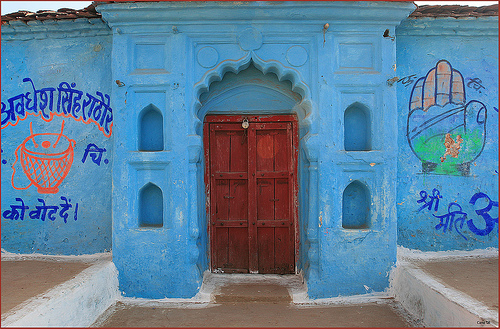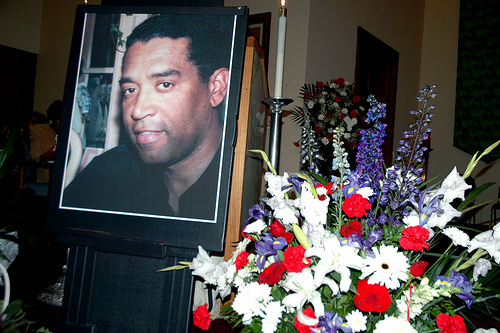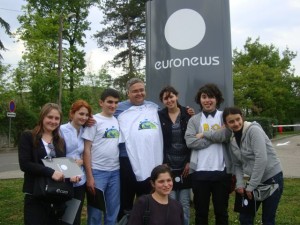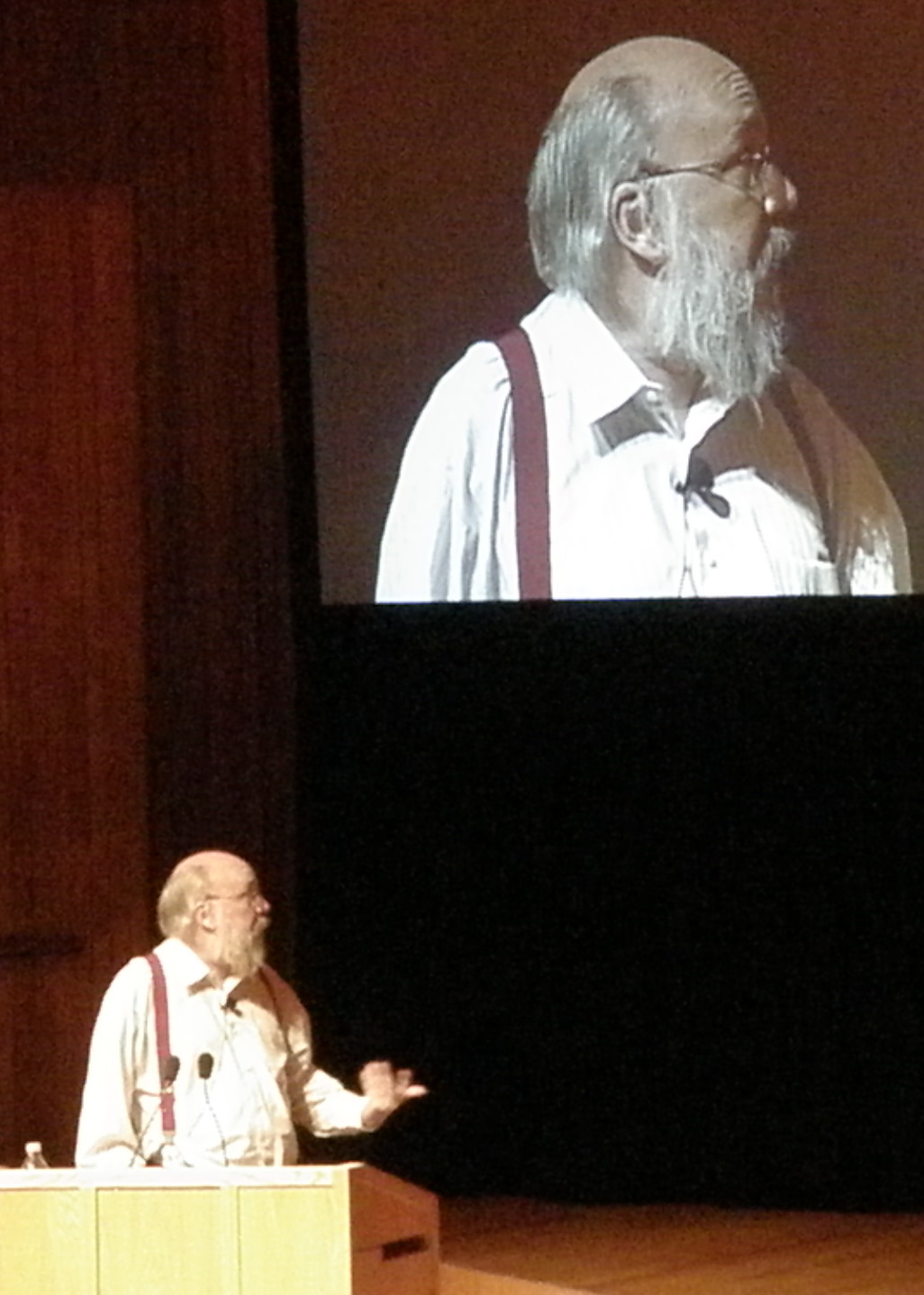My Netroots Nation Vacation
ø

 Winding down my vacation here in Netroots Nation with a delicious, union-made Leinenkugel’s Sunset Wheat beer, thoughtfully provided by Working America and the AFLCIO. Trying to process my thoughts and impressions from 3 full days in this really interesting group.
Winding down my vacation here in Netroots Nation with a delicious, union-made Leinenkugel’s Sunset Wheat beer, thoughtfully provided by Working America and the AFLCIO. Trying to process my thoughts and impressions from 3 full days in this really interesting group.
My panel – as usual, I can’t remember a word I said, but I’m sure I was mostly incoherent and didn’t make even half the poi nts I meant to. HOWEVER, I do remember that in a Q&A about business models, I got actual applause for saying we need more public* financing for journalism. So there, journalism purists! Ari Melber was articulate as always and so right to remind people that the decline of legacy media and the rise of participatory media are coincidental, not cause and effect. Jay Rosen was great at giving a historical perspective, however, I worry the message people might have gotten is that everything will work itself out without our help, which I don’t agree with (and am not sure is what Jay meant). Karl Frisch was articulate, but perhaps unnecessarily focused on bashing corporate media which felt (to me) like not quite the point. Yobachi Boswell was wonderfully candid about his reliance as a blogger on professional journalism. And our one courageous representative of newspaper journalism Michael Fuoco whether intentionally or not highlighted most of the reasons why I believe most existing US daily newspapers are structurally incapable of being the organizations to preserve the core functions of journalism in a democracy:
nts I meant to. HOWEVER, I do remember that in a Q&A about business models, I got actual applause for saying we need more public* financing for journalism. So there, journalism purists! Ari Melber was articulate as always and so right to remind people that the decline of legacy media and the rise of participatory media are coincidental, not cause and effect. Jay Rosen was great at giving a historical perspective, however, I worry the message people might have gotten is that everything will work itself out without our help, which I don’t agree with (and am not sure is what Jay meant). Karl Frisch was articulate, but perhaps unnecessarily focused on bashing corporate media which felt (to me) like not quite the point. Yobachi Boswell was wonderfully candid about his reliance as a blogger on professional journalism. And our one courageous representative of newspaper journalism Michael Fuoco whether intentionally or not highlighted most of the reasons why I believe most existing US daily newspapers are structurally incapable of being the organizations to preserve the core functions of journalism in a democracy:
- he only semi-jokingly admitted his primary concern was whether the paper would stay in business long enough for him to put his kids through college.
- he’s head of the union (note: I love and believe fiercely in unions, but I fear that the commitments many newspaper companies have to keeping their existing too-large workforces employed, whether due to union contracts or just their corporate desire not to layoff massive numbers of hardworking people, are one of many factors (their massive debt is another) that make it difficult for them to reinvent themselves in a way that supports good journalism in the public interest)
- he feels that there’s a huge focus at the paper on the website, even though they have no idea how to make money on it (and even though they lack any number of basic things – when I searched for a link for Michael, I couldn’t find a bio page or a way to search for all articles by him and the post-gazette doesn’t appear in the first page of Google results on his name.
- they get lots of traffic from outside of Pittsburgh and even outside Pennsylvania, most of it related to the Steelers. In fact, the Steelers have a huge impact on their bottom line. Sorry, but sports reporting is not high on my personal list of things that newspapers do that we can’t afford to lose. But with the Steelers-income link clear to everyone at the paper, who will be surprised if they lay off reporters covering education instead of those covering sports?
The plaintive op-ed in the paper today that mentioned Michael’s participation at Netroots added the final nail – too many print people seem to believe that it’s the physical paper and the out-of-date business model that accompanies it that makes their work important:
Print may not be as “sexy” as blogs as far as Mr. Clinton is concerned, but it is still the enterprise that gathers the bulk of today’s news. Through one platform or another, the Post-Gazette and other deeply rooted news organizations plan to be around and serving democracy for a long time.
Guys, it’s not about that. No one on the panel disagreed with Michael that well-done, accurate fact-based reporting is valuable, important, wonderful and that newspaper reporters often (but far from always) do it. But that reporting is a tiny piece of what a newspaper is and saving newspapers or your specific jobs is not the most likely way to ensure that we get the journalism we need.
The audience seemed very thoughtful and openminded, neither aggressive towards legacy media nor obsessed with technology, but genuinely interested in how things might evolve and whether it will be good for democracy. Refreshing.
Anyway, AFTER I was done with my panel, I got to spend 2 days being absolutely inspired by the spirit of the people here vacillating between excitement at all the groups I didn’t know about and guilt at how little I’ve done to help the causes I believe in. Also, how delightful downtown Pittsburgh is. (no, that is not a joke) However, details on all the wonderful stuff I heard on other panels will have to wait for another post, it’s time to head for the airport.
*”public” in my definitely doesn’t necessarily imply government funding, although it certainly includes funds gathered by the gummint. $1/month tax on every subscriber‘s broadband bill could fund a Corporation for Public Journalism with a budget almost twice the size of Corporation for Public Broadcasting.
Pittsburgh at Night by brunkfordbraun via Flickr

 Instead, I can only marvel at the courageous eloquence of the letter, here are some of my favorite parts:
Instead, I can only marvel at the courageous eloquence of the letter, here are some of my favorite parts: right of a whole nation with utmost inequity and total injustice….
right of a whole nation with utmost inequity and total injustice…. Or how would you find out about
Or how would you find out about 


 Protect Journalists (CPJ), noted that in addition to continued attacks on traditional journalists, online journalists are increasingly at risk and now more of the journalists jailed for their work publish online than in print. Fittingly, CPJ today announced the
Protect Journalists (CPJ), noted that in addition to continued attacks on traditional journalists, online journalists are increasingly at risk and now more of the journalists jailed for their work publish online than in print. Fittingly, CPJ today announced the 







 I’m honored (not to mention intimidated) to be joining a panel with some of my favorite super-smart people (
I’m honored (not to mention intimidated) to be joining a panel with some of my favorite super-smart people (



